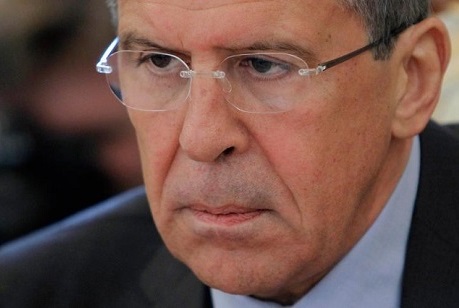Lavrov: “Restoring police cooperation with Georgia is precondition for returning visa-free regime”

Russian Foreign Minister Sergey Lavrov says that the precondition for easing the visa regime for Georgian citizens is the restoration of law enforcement cooperation between the two countries.
Lavrov spoke to media about the conditions for simplifying the visa regime for Georgians on the sideline of the Munich Security Conference.
He called the possibility of returning the visa-free regime with Georgia a "complex issue” and said that it was "a little strange” to discuss this matter in the absence of diplomatic relations with Tbilisi.
"But it is also associated with the need of ensuring safety. Not only Central Asia but the South Caucasus, too, is becoming a route that militants and extremists are trying to use”, he added.
Today, the Georgian Prime Minister’s special representative for relations with Russia, Zurab Abashidze, replied to the comments made by Lavrov.
Abashidze said that Georgia is a safe country so Lavrov’s statement regarding the South Caucasus becoming a place related to militants does not apply to Georgia.
"Last year, we received a record number of Russian tourists – about one million. This number as well as the fact that foreign tourists feel very comfortable in Georgia prove that the level of security is high in our country”, Abashidze said.
He added that this has been proved by the latest research and reports of many international organisations.
"Thus, the words by Mr. Lavrov about the South Caucasus becoming the route of militants and extremists are wrong regarding Georgia. We can’t accept this”, Abashidze said.
He also pointed out that about 2,000 Russian citizens have left for Syria and Iraq.
Talking about the visa regime, Abashidze said that Moscow has been sending various messages regarding this issue for the past two years.
- He said that in 2015, Russian President Putin used to talk about a possible resolution to the visa issue.
- Later on, the Russian Foreign Ministry said that it was planning not to cancel visa requirements but to simplify them, which took place in 2016.
- Several weeks ago Moscow said again that measures were underway to further ease the visa regime;
- And now, Lavrov has "voiced new elements” in this regard.
"It’s up to Russia to decide what kind of visa regime it will offer Georgian citizens. We can’t force them to do anything. If they further simplify the visa regime we will welcome this step; if they cancel the visa requirement we will welcome this too. But it’s their prerogative”, Abashidze said.
 Tweet
Tweet  Share
Share